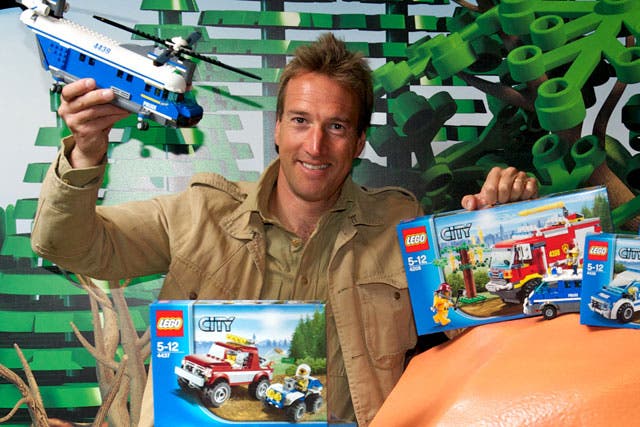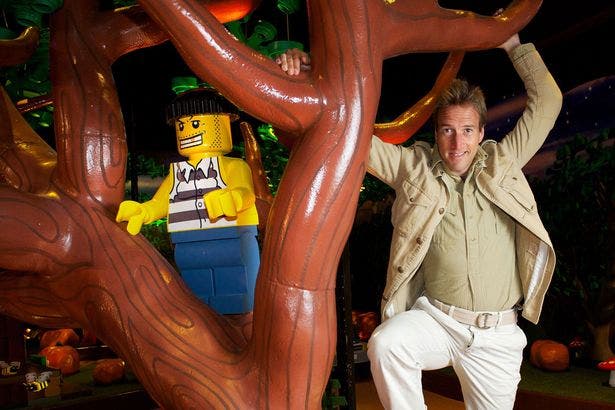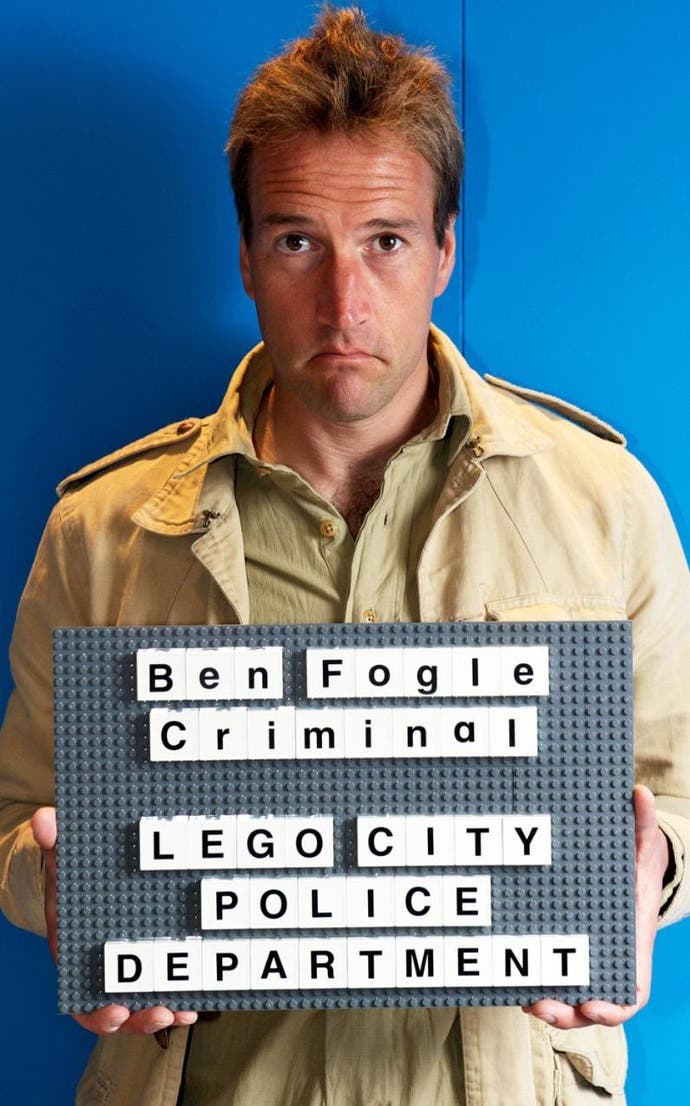Why video games are better than Lego
Someone should tell Ben Fogle.
Imagine being Ben Fogle. I'm sure we all have, at some point. It must be tough. The daily challenge of having to look rugged and cuddly at the same time. The effort of batting away armies of women who just want to ruffle your hair. The struggle to convince yourself that it's OK, safari jackets ARE still cool.
Worst of all, imagine living with the knowledge that humanity is doomed. Not because of terrorism, or war, or global warming, but because of the bloody Danes and their tiny plastic bricks.
Yes, Ben Fogle reckons Lego has ruined the world. It was alright in the seventies, he says, when children were given a plain old box of bricks, and had to use their imaginations to construct a model of Demis Roussos, or the European Exchange Rate Mechanism. It's all kits these days, and "has transformed into a rigid box-ticking discipline where children are encouraged to build by conformity."

Fogle, whose surname is an anagram of 'F* Lego', made these comments in a speech to the Boarding Schools' Association conference. He went on to argue Lego embodies everything that's wrong with our education system. (Speaking of boarding schools, loony lefties might suggest the real problem is an inherently unfair two-tier structure that enables seven per cent of the population to make up 50 per cent of the people running the country. But have they ever faced down a lion with a cable tie? Exactly.)
The good news is that there is an alternative. Ben Fogle, I give you: video games.
Now, I know what you're thinking. Aren't video games also about box-ticking and boundaries, and being rewarded for following instructions? Yes, they are. This is because humans like order. Sure, we all like to think we're wonderfully creative, that we'd be best-selling authors if we weren't so busy paying the bills and watching Homes Under the Hammer. The reality is that most of us do not, in fact, have a great novel in us. (Although I'm pretty sure that somewhere in me there's a decent dirty limerick.)
We get pleasure and satisfaction from putting things in their place. This is why so many of the most successful video games are about rearranging stuff and clearing up mess, from Breakout and Pac-Man to Candy Crush and Minecraft. As my friend Sam Pamphilon says in our new TV series Dara O'Briain's Go 8 Bit, out this autumn on Dave: "Tetris is just tidying up."

So in that respect, video games are no better than Lego. But let's not overlook the additional lessons games have to teach children. For example:
Pay attention in class
Which of us hasn't skipped blithely through a video game tutorial, only to discover later we have no idea how to perform a simple operation? I once spent 15 minutes stuck in a corridor in Gears of War because I couldn't do a combat roll. Although to be fair, I was incredibly drunk.
Repetition is the key to success
As all Guardian-reading parents will know, praising your child isn't trendy these days. "That's a lovely drawing, darling," achieves nothing, apparently. It's better to point out that the kid's drawing skills are improving generally, because they're working at them.
This is video games in a nutshell, innit. When I first played Tomb Raider, I couldn't walk more than four steps without plunging into a ravine. Three hours later, I was lining up jumps with pixel precision, and doing swan dives off waterfalls. Games teach us that the more you do something, the better you get at it.
You will never pay off your mortgage
Cheers, Animal Crossing.
If at first you don't succeed...
You can't really fail at Lego. But video games are all about failing - getting shot, missing the goal, plunging into the ravine, etc. They teach you how to lose. What's more, they demonstrate that the best thing to do is to get up and try again, until you win.
...Give up and do something else.
Of course, the try again thing doesn't always apply. Don't know about you, but the stack of games I have failed to complete is a lot bigger than the pile of ones I've finished.
I'm OK with that. Video games have taught me that with so much choice out there, there's no point wasting your time on something particularly hard, boring, or annoying. This is relevant to so much in life, from bad relationships and crap jobs to making your own gnocchi.

Bosses are c****
Self-explanatory.
There is no such thing as death
Messing up is never final in video games. Sure, you might have to start over, sometimes from the very beginning. But just like in real life, there's always the option to have another go. Unless you are literally dead.
So there you go, Fogle. Stuff Lego, with its 65 year legacy of entertaining literally billions of children. Forget the fact they do a whole range of products designed to promote creativity, and that nowhere in the kit instructions does it say you can't use the bits to make other things. Let's pretend I'm not currently looking at a robot my five year-old built using pieces of Spider-Man's HQ, a Jedi Scout Fighter, and Elsa's Sparkling Ice Castle, like some kind of licensing-crazed Dr Frankenstein.
I suggest you throw all your kids' Lego in the bin, along with the money you got paid for being a Lego brand ambassador, and get yourself some good old fashioned video games.
Or, you know, just accept that children don't always like the stuff we want them to like. It's true that toys shouldn't be about making kids conform. But that includes conforming to an idealistic vision of how children should spend their time.
Above all, toys should be fun. And that's something Lego and video games very much have in common.

